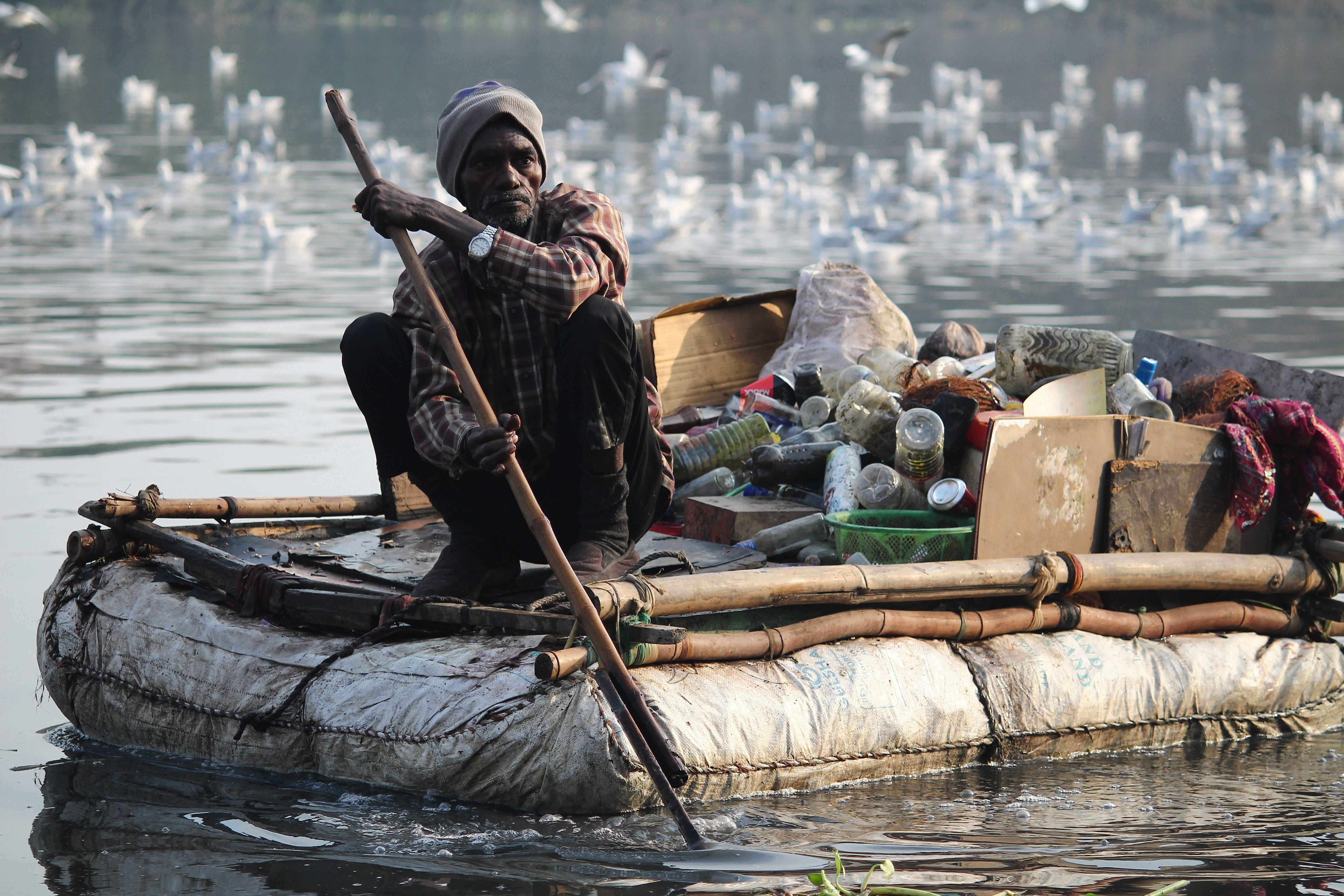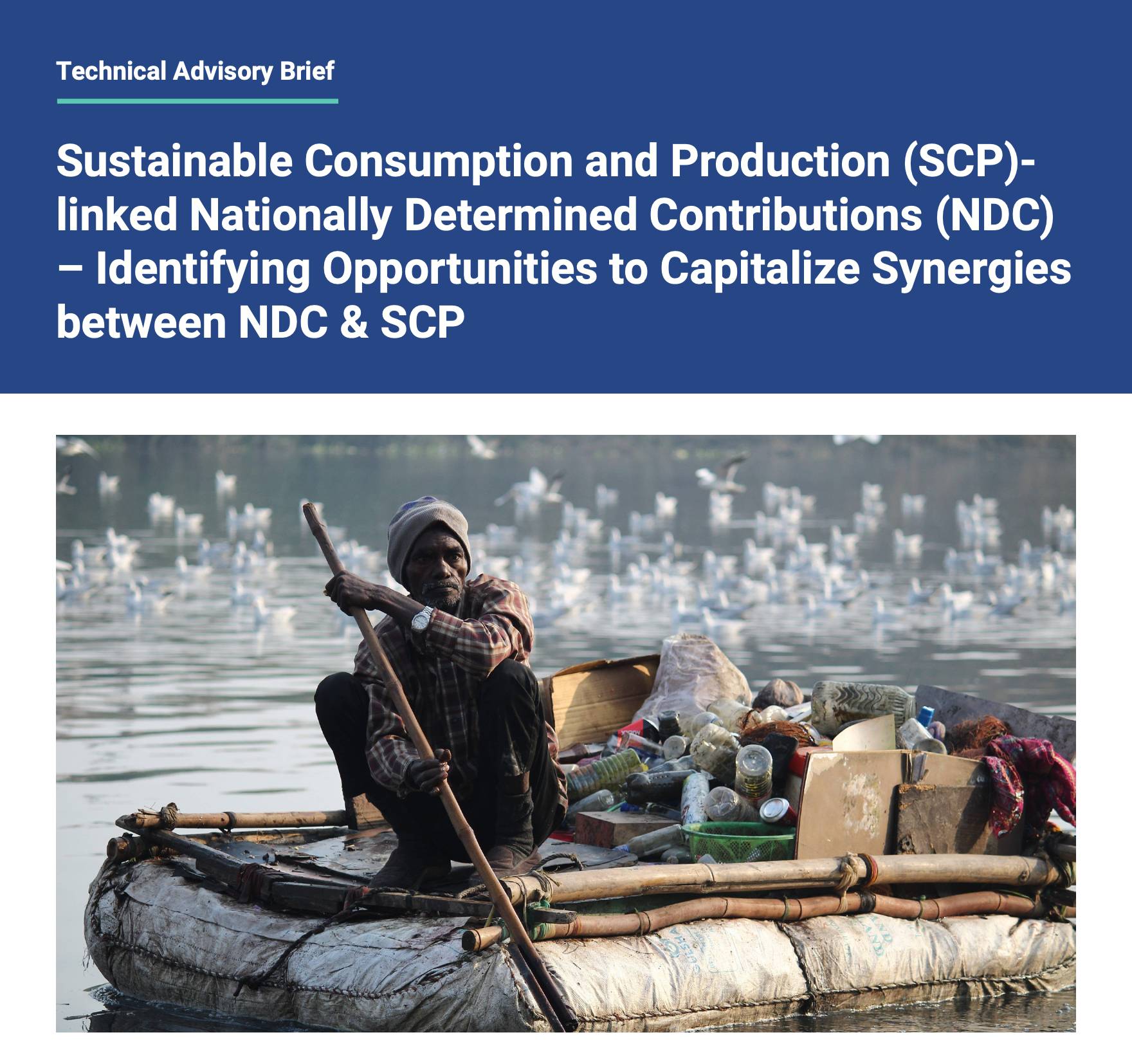
Location: India, Sri Lanka, Bhutan, Maldives, Bangladesh, Nepal, Pakistan
Themes: Nationally Determined Contributions
The Challenge
Sustainable consumption and production (SCP) have significant co-benefits for addressing climate change. Unsustainable patterns of consumption and production are the root causes of the triple planetary crises: climate change, biodiversity loss, and pollution. It is widely accepted that appropriate adjustments in production and consumption patterns can potentially avoid a substantial portion of global greenhouse gas emissions. This is particularly important for the Asia-Pacific region, given its steep increase in domestic material consumption during the first two decades of the century.
The Nationally Determined Contribution (NDC) serves as a fundamental component of the Paris Agreement, which was agreed upon at the 21st Conference of Parties (COP21) of the United Nations Framework Convention on Climate Change (UNFCCC). It paved the way for a bottom-up approach to address global climate change challenges and offers an opportunity to align national priorities with climate actions. All parties are expected to progressively update their NDCs every five years in order to achieve the overarching objectives of the Paris Agreement.
During the first NDC cycle, many Asia-Pacific countries included NDC targets linked to SCP and advocated for the integration of SCP into NDCs. Energy efficiency, waste management, value chain improvements, green buildings, low-carbon footprint building materials, and promotion of sustainable lifestyles are among the common areas of SCP-linked NDC focus in Asia.
The upcoming NDC enhancement cycle will conclude in 2025, and it is of paramount importance that lessons learned from the first NDC cycle are captured and analysed. This will contribute to setting more ambitious and pragmatic NDC targets for the next cycle. The SWITCH-Asia Policy Support Component (PSC) aims to participate in the process of documenting the experiences of integrating SCP into NDCs, including the challenges and opportunities faced by "champion countries" in the South Asia Region. The South Asian region holds great significance in achieving SCP-linked NDC targets. This analysis will play a vital role in enhancing NDCs in 2025 by integrating more ambitious and pragmatic SCP-linked targets, thus harnessing climate change benefits while also advancing national sustainable development priorities.
Through effective implementation of SCP strategies such as promoting energy efficiency, waste management, and eco-friendly production processes, South Asian countries can not only contribute to achieving their own NDC targets but also assume a crucial role in addressing global climate change and ensuring a more sustainable future for all.
Being one of the most densely populated and culturally diverse regions globally, South Asia faces unique challenges and opportunities in promoting sustainable practices. With its rapid economic growth and expanding middle class, the region's consumption patterns exert a significant impact on global resource utilization and environmental sustainability.
Objectives
Capture experiences and co-creation of knowledge based on the practices of India, Sri Lanka, Bhutan, Maldives, Bangladesh, Nepal and Pakistan; and analyse how these countries are integrating SCP aspects into NDC targets and implementingthose targets during the current NDC cycle.



